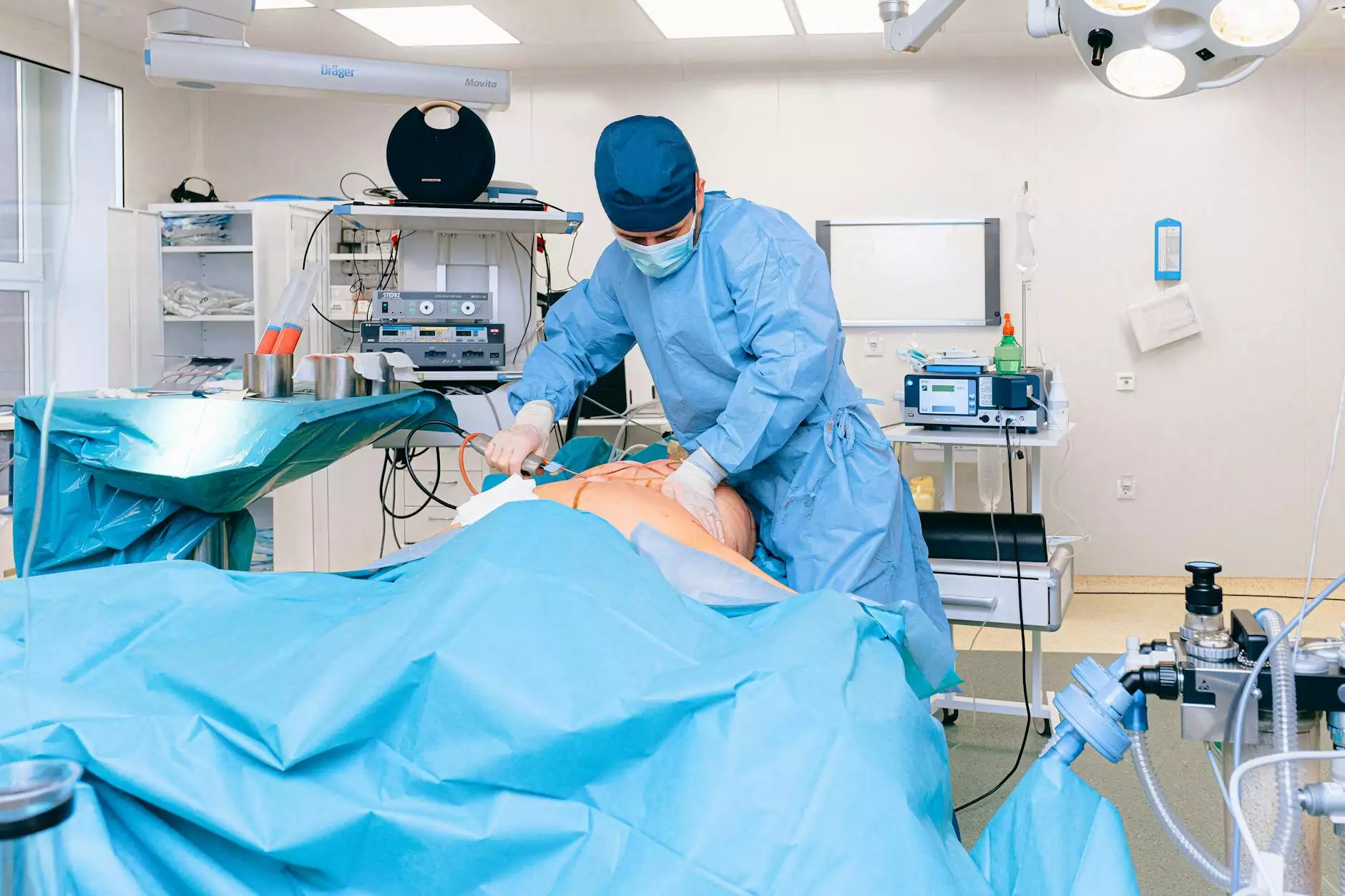Lung Surgery: A Comprehensive Guide to Procedures, Benefits, and Recovery

Lung surgery, also known as pulmonary surgery, is a crucial procedure for individuals suffering from various lung diseases. This article delves deep into the types of lung surgeries performed, their benefits, recovery processes, and much more essential information designed to empower patients and caregivers alike.
Understanding Lung Surgery
Lung surgery can be life-saving and involves multiple types of procedures targeting the lungs and surrounding structures. Many patients may feel anxious or overwhelmed at the thought of undergoing surgery. At Neumark Surgery, our team of experienced professionals is dedicated to providing comprehensive care, ensuring that you're well-informed and comfortable throughout the process.
Types of Lung Surgery
There are several types of lung surgery, each tailored to specific conditions. Below are the primary categories:
- Lobectomy: This involves the removal of one of the lobes of the lung and is performed mainly for lung cancer or severe infections.
- Pneumonectomy: This is the removal of an entire lung, often necessary in advanced lung cancer or serious lung disease.
- Sleeve Resection: Partial removal of a lobe, this surgery is used when cancer is localized, allowing for preservation of lung function.
- Video-Assisted Thoracoscopic Surgery (VATS): A minimally invasive technique that uses small incisions and a camera to guide the surgery, leading to faster recovery.
- Decortication: This procedure is performed to remove fibrous tissues from around the lung, usually due to conditions like pleural effusion.
- Lung Biopsy: In this procedure, some lung tissue is removed for testing, helping to diagnose various lung diseases.
When is Lung Surgery Necessary?
The necessity for lung surgery can arise from various medical conditions, including:
- Lung Cancer: Often necessitating surgery to remove tumors and prevent the spread of cancer.
- Chronic Obstructive Pulmonary Disease (COPD): In advanced cases, surgery may be required to improve breathing function.
- Pneumonia: Severe cases that lead to abscesses may require surgical intervention.
- Interstitial Lung Disease: Some forms may require surgery for lung volume reduction.
Each of these conditions is distinct, and the decision for surgery should be guided by an experienced pulmonary specialist.
Benefits of Lung Surgery
Deciding to undergo lung surgery can come with a lot of deliberation. However, understanding the benefits might ease some of those worries. Here are the significant advantages:
- Enhanced Quality of Life: Many patients experience improved breathing and reduced symptoms after surgery, leading to a better overall quality of life.
- Increased Longevity: For conditions like lung cancer, surgery can significantly increase survival rates.
- Targeted Treatment: Surgery can specifically target problematic areas, allowing for precision in treatment.
The Surgical Process
The surgical process can vary depending on the type of lung surgery being performed. Here’s a brief overview of the typical steps involved:
- Pre-operative Assessment: Before surgery, doctors will conduct a thorough assessment, which may include imaging tests, blood tests, and pulmonary function tests.
- Anesthesia: Patients are typically placed under general anesthesia to ensure comfort during the procedure.
- Surgical Procedure: Depending on the type of surgery, the surgeon will remove the targeted tissue or perform necessary repairs.
- Post-operative Care: After surgery, patients are monitored in a recovery room before being moved to a hospital room.
Recovery After Lung Surgery
The recovery process is crucial for healing and regaining strength. Here’s what patients can typically expect:
- Hospital Stay: The duration of stay varies depending on the procedure; patients may spend a few days to a week in the hospital.
- Pain Management: Doctors will provide medications to manage pain effectively during recovery.
- Respiratory Therapy: Breathing exercises and rehabilitation are integral to help restore lung function.
- Gradual Increase in Activity: Patients will be encouraged to gradually resume normal activities as they recover.
Potential Risks and Complications
While lung surgery can be life-saving, it's essential to recognize that all surgeries carry risks. Potential complications from lung surgery can include:
- Infection: Surgery can expose patients to infection, which can be serious in lung surgery cases.
- Bleeding: Patients may experience extra bleeding during or after the procedure.
- Breathing Problems: Changes in lung function or complications can arise, necessitating additional treatment.
- Scarring: Surgical scars can form on the lungs and chest, potentially impacting future lung function.
Innovations in Lung Surgery
The field of lung surgery is continuously evolving, with new technologies and methods enhancing patient outcomes. Some of these innovations include:
- Robotic Surgery: Utilizes robotic systems to perform surgeries with enhanced precision and minimal invasiveness.
- Advanced Imaging Techniques: Imaging technologies help surgeons to visualize and navigate through complex anatomical structures more effectively.
- Personalized Medicine: Tailoring surgical approaches based on individual patient profiles is gaining ground.
Preparing for Lung Surgery
Preparation is crucial to ensure a smoother surgical experience. Patients are encouraged to:
- Follow Pre-surgical Instructions: Adhering to guidelines regarding diet, medication, and lifestyle is essential.
- Arrange Post-operative Support: Having a support system in place for recovery at home can assist immensely in the healing process.
- Ask Questions: Engaging with healthcare providers and clarifying doubts is vital to achieving peace of mind.
Conclusion
In conclusion, lung surgery represents a vital option for those affected by severe lung conditions. The expertise provided at Neumark Surgery ensures that patients receive comprehensive care before, during, and after their procedures. With a focus on innovative techniques and personalized patient care, we strive to maximize the outcomes and benefits of lung surgery.
If you or a loved one are facing the prospect of lung surgery, don't hesitate to reach out. Understanding your options and what to expect can empower you on your journey to better lung health.
Your health is our priority, and at Neumark Surgery, we are here to guide you every step of the way!









